Banking from your phone?
Download our app
Welcome Back
You can access your accounts here.

Banking from your phone?
Scan the code to download our app.

not featured
2024-04-16
Credit
published
Secured vs Unsecured Credit Cards: What’s the Difference?
.png)
-
Navigating the world of credit cards can be overwhelming. From pre-approval offers to specialized rewards programs, the options seem endless. But there are two main types to consider for most people: unsecured credit cards and secured credit cards.
Unsecured credit cards are what most people envision when they think of credit cards, and they are the most common. On the other hand, secured credit cards have a distinct purpose: to facilitate safe credit building, which is why they are regularly called "credit builders."
Both types empower cardholders to make purchases wherever they desire and emphasize the importance of timely payments. But what sets secured and unsecured credit cards apart? Keep reading to explore the differences between the two with your trusted military bank by your side.
If you want to brush up on your knowledge of secured credit cards, revisit our previous blog, Credit Builder Secured Credit Cards and How They Work. Now, let's dive back into the fundamental distinctions between secured and unsecured cards:
1. Qualifications & Availability
- Secured Credit Cards: These are geared towards people without an established credit history or those aiming to rebuild their credit. They are accessible for individuals who might have difficulty obtaining unsecured cards due to their credit history. Secured credit cards can also help you build your credit for the first time.
- Unsecured Credit Cards: It is generally more challenging to qualify for an unsecured credit card because they are typically reserved for individuals with good to excellent credit scores.
2. Requirement for Collateral
- Secured Credit Cards: Requires a “security deposit,” or an initial cash deposit as collateral. This serves as security for the issuer in case the cardholder fails to meet payment obligations.
- Unsecured Credit Cards: No collateral required. Approval depends on the cardholder's creditworthiness, including factors such as credit history, income, and other considerations.
3. Benefits
- Secured Credit Cards: Despite lacking the extensive features of unsecured cards, a secured credit card serves as a valuable tool for establishing or repairing credit. By engaging in responsible credit practices (such as paying your bills on time and maintaining low credit balances) you can significantly improve your credit score.
- Unsecured Credit Cards: Not only does your usage contribute to your credit history and credit score, but it also provides additional benefits and rewards for responsible use. This may encompass perks such as cash back rewards, travel rewards, or other incentives.
4. Credit Limit
- Secured Credit Cards: Although both cards have credit limits, the criteria and maximum limits may differ. The credit limit for a secured card is determined by the initial cash deposit, typically reaching up to a few thousand dollars.
- Unsecured Credit Cards: Meanwhile, unsecured cards offer significantly higher credit limits, contingent upon the applicant's creditworthiness and other factors. A higher credit limit provides greater financial flexibility.
5. Assumed Risk
- Secured Credit Cards: These cards pose lower risk for the lender because they are backed by the collateral of the upfront cash deposit requirement. This ultimately ensures that the lender can recover their funds if the cardholder defaults on payments.
- Unsecured Credit Cards: Because they lack collateral, it is more challenging for the lender to recoup losses if the cardholder fails to pay their balance. As a result, the lender assumes a higher level of risk.
6. Interest Rates & Fees
- Secured Credit Cards: Likely to have higher interest rates and/or annual fees than those for unsecured cards. This is primarily because secured cards cater to individuals with limited credit histories and poor credit scores.
- Unsecured Credit Cards: Feature lower interest rates and fees, particularly for individuals with favorable credit scores.
Credit Cards at Armed Forces Bank
Secured and unsecured cards have their differences, but both aim to improve your financial standing. Whether you're just starting out with credit or have years of experience, Armed Forces Bank is here to help. Explore our credit card offerings and make progress towards reaching your financial objectives.
Member FDIC
All Armed Forces Bank credit cards are Subject to credit approval. Transaction and Penalty fees apply.
For the Unsecured Credit Card, the Annual Percentage Rate (APR) is based on credit history.
For the Credit Builder Secured Credit Card, a Credit Builder Savings account required. $5.00 quarterly fee will be charged to the Credit Builder Savings account if not enrolled in eStatements. Once added, funds cannot be withdrawn from the Credit Builder Savings account and the Credit Builder credit card without closing the savings account and the credit card.
Improved credit score is not guaranteed. Credit score is determined by credit reporting agencies based on multiple factors, but satisfactory performance on a credit card product can improve your credit score. Default on a credit card, including missed or late payments can damage your credit score.